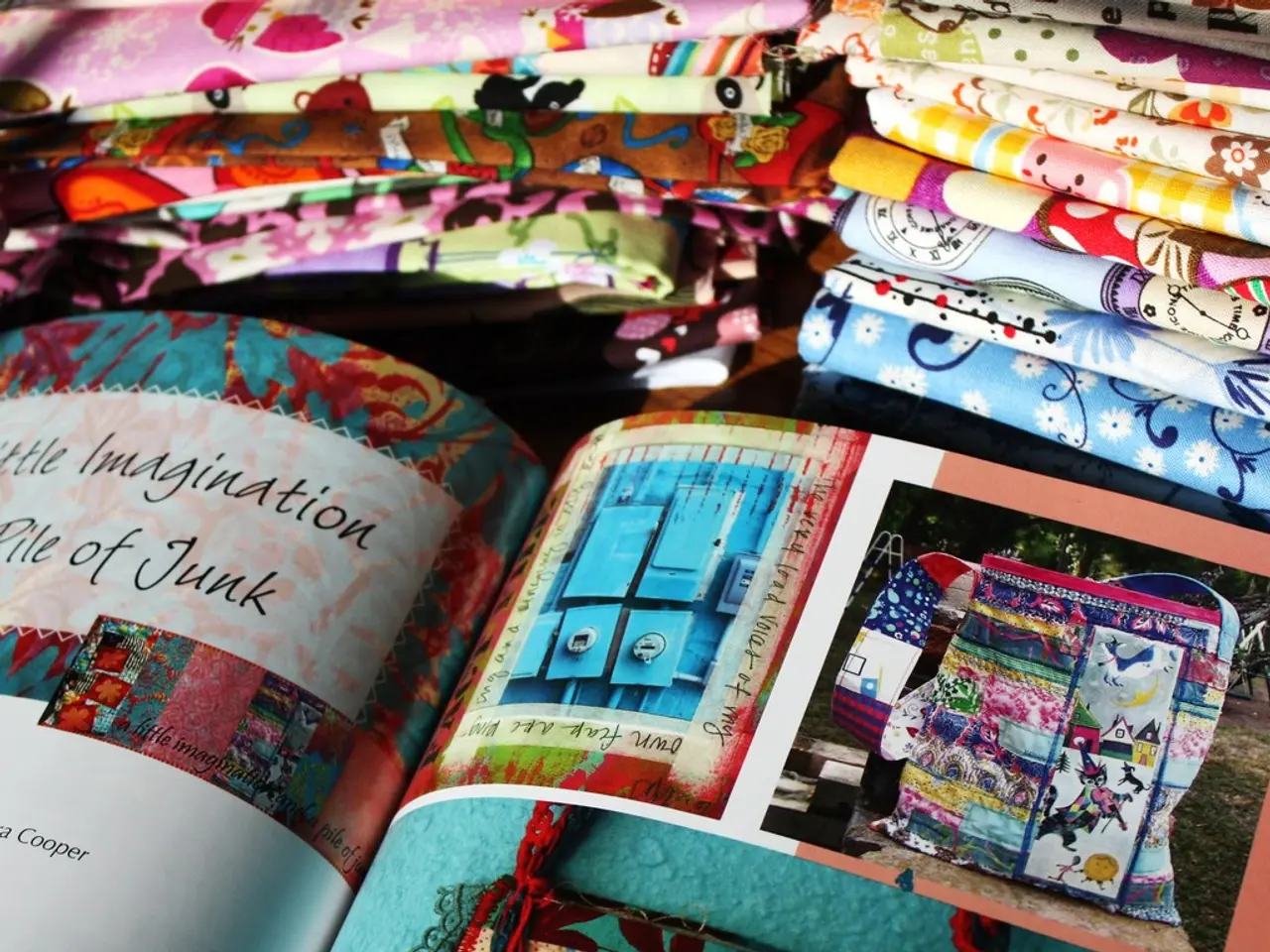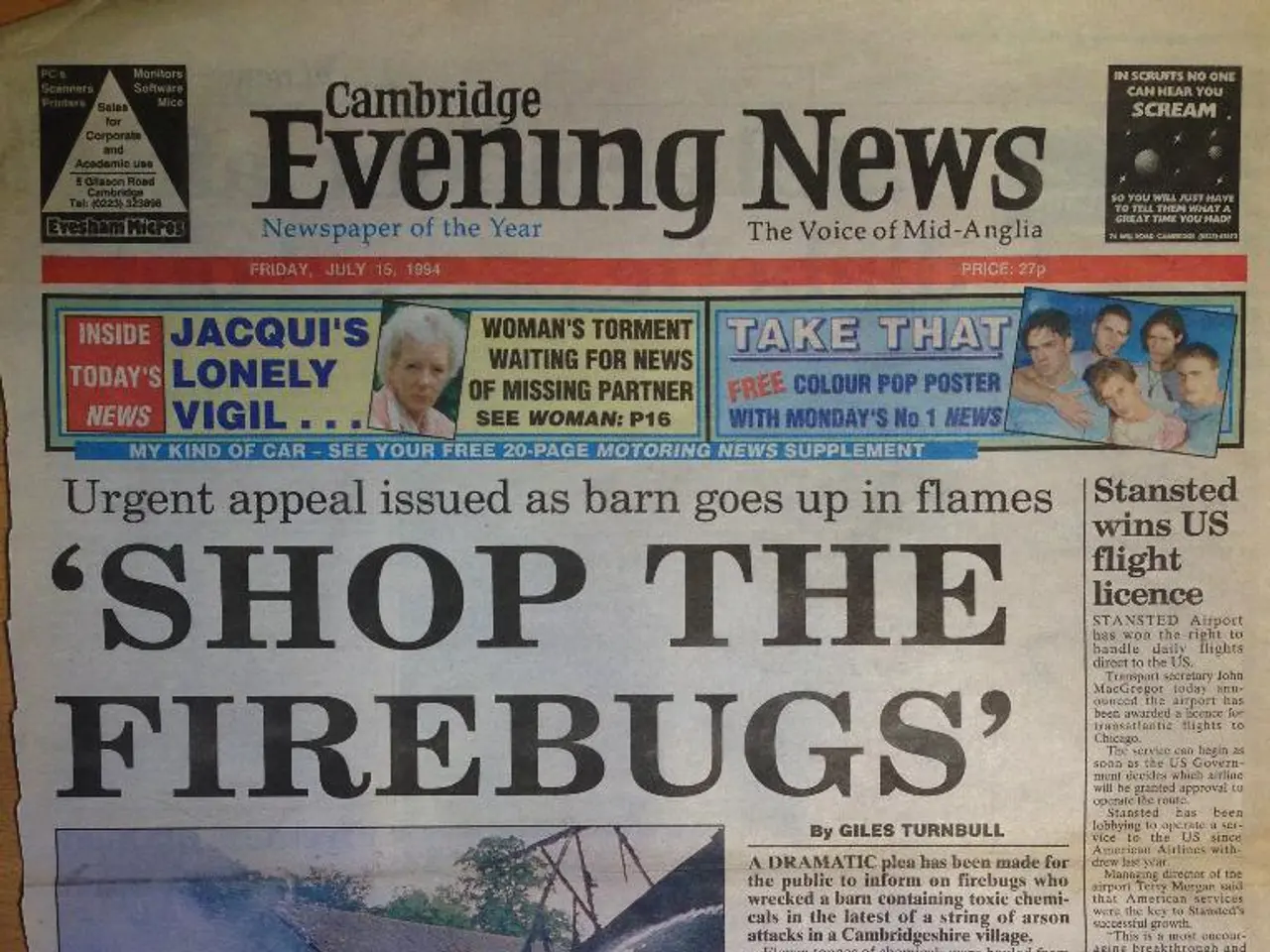UK's PEC (Parliamentary Energy and Climate Change Committee) Response to DCMS (Digital, Culture, Media and Sport Committee) Investigation on Boosting Britain's Global Presence
**UK's Creative Industries Policy and Evidence Centre (PEC) Shapes Future of Soft Power Strategy**
The Creative Industries Policy and Evidence Centre (PEC) is a leading independent research and policy organisation, playing a pivotal role in shaping the UK's soft power strategy and addressing global challenges.
The PEC, based in London, has been actively engaged in various government inquiries and consultations, providing data-driven research and policy support for the creative sector. The Centre's contributions have been instrumental in shaping key government strategies, such as the UK's Creative Industries Sector Plan, which aims to nearly double business investment in the sector by 2035.
One of the key aspects of PEC's role is informing government strategy and investment. By providing policymakers and industry leaders with robust data, evidence, and analysis, the Centre has helped enact plans that strengthen the UK's cultural influence worldwide through film, TV, advertising, music, and immersive experiences.
The PEC also supports innovation and research and development (R&D) in the creative industries. By clarifying that arts activities contributing to scientific advances qualify for R&D tax relief, the Centre encourages the growth of innovative creative outputs that contribute to the UK's technological and cultural leadership.
Furthermore, the PEC recognises the evolving threats and opportunities posed by global transitions, such as climate change, emerging technologies like generative AI, and shifting international trade dynamics. By improving access to sector-specific statistics and reviewing how creative subsectors are categorized, the Centre ensures policies remain data-informed and adaptive to challenges like sustainability and pandemic recovery.
The Centre's work also focuses on enabling the creative sector's economic resilience and growth. As the creative industries help drive regional growth and innovation, PEC's evidence strengthens initiatives addressing economic and social recovery post-Covid-19, ensuring creative businesses can adapt and thrive while contributing to wider societal goals like sustainable development.
Recently, the Government published the Integrated Review, and the Creative PEC provided a response to 'A new era of soft power?'. The Centre also submitted written evidence to the DCMS consultation on 'A change of ownership of Channel 4 Television Corporation.'
A significant piece of work by the PEC is the paper titled "Promoting Britain Abroad," which was submitted to the DCMS Committee in January 2022. Co-authored with Nesta, the paper discusses the role of the UK's creative industries in strengthening the country's soft power, contributing to local and national economies, and addressing global challenges such as sustainable development and the Covid-19 pandemic. The paper also delves into the role of AI, intellectual property, and regulation in the creative industries.
The full paper can be found at this link: [https://our website/wp-content/uploads/2024/01/Promoting-Britain-Abroad-published-PEC-evidence.pdf](https://our website/wp-content/uploads/2024/01/Promoting-Britain-Abroad-published-PEC-evidence.pdf)
In summary, the Creative Industries PEC acts as a vital evidence hub, supporting the UK government in crafting a forward-looking, resilient soft power strategy centered on a thriving, innovative creative sector that addresses global challenges including sustainable development and pandemic recovery. This integration of research, policy, and industry helps maintain and enhance the UK's cultural and economic influence globally.
- The PEC's research and policy findings serve as crucial evidence to shape the UK's soft power strategy within the broader context of international politics, policy-and-legislation, and general news.
- By fostering a culture of innovation, the Centre encourages new creative skills and talent in the UK's arts, education, and creative industries.
- In collaboration with organisations like Nesta, the PEC emphasises the need for forward-thinking strategies that prioritise innovation and research, such as generative AI, intellectual property, and regulation, for the growth of the creative industries.
- The PEC's commitment to evidence-based decision making ensures that policies are adapted to tackle contemporary challenges like climate change, shifting international trade dynamics, and technological advancements.
- Through its involvement in consultations and government inquiries, the Centre demonstrates its dedication to imparting data-driven insights to shape a robust soft power strategy within the creative industries.
- By promoting the intangible components of the UK's cultural assets, such as film, TV, music, and immersive experiences, the PEC aims to capitalism on the UK's creative industries' potential to drive socioeconomic development.
- The integration of the creative industries into UK's soft power strategy allows for the leverage of the sector's economic and cultural strengths to deal with pressing issues on a global scale, like the ongoing recovery from the Covid-19 pandemic and sustainable development.
- Understanding that the prosperity of the creative sectors is key to the nation's economy, the PEC works towards creating a favorable environment for businesses in the creative industries, including an emphasis on economic resilience and growth post-Covid-19.





